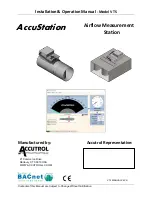
SARA-R5 series - System integration manual
UBX-19041356 - R04
Design-in
Page 80 of 118
C1-Public
2.5.2
Guidelines for SIM layout design
The layout of the SIM card interface lines (
VSIM
,
SIM_CLK
,
SIM_IO
,
SIM_RST
)
may be critical if the
SIM card is placed far away from the SARA-R5 series modules or in close proximity to the cellular
antenna (and/or GNSS antenna, for SARA-R510M8S modules): these two cases should be avoided or
at least mitigated as described below.
In the first case, the long connection can cause the radiation of some harmonics of the digital data
frequency as any other digital interface. It is recommended to keep the traces short and avoid
coupling with RF lines or sensitive analog inputs.
In the second case, the same harmonics can be picked up and create self-interference that can reduce
the sensitivity of LTE receiver channels (and/or GNSS channels, for SARA-R510M8S modules) whose
carrier frequency is coincidental with harmonic frequencies. It is strongly recommended to place the
RF bypass capacitors suggested in
, and
near the SIM connector.
In addition, since the SIM card is typically accessed by the end user, it can be subjected to ESD
discharges. Add adequate ESD protection as suggested to protect module SIM pins near the SIM
connector.
Limit capacitance and series resistance on each SIM signal to match the SIM specifications. The
connections should always be kept as short as possible.
Avoid coupling with any sensitive analog circuit, since the SIM signals can cause the radiation of some
harmonics of the digital data frequency.
















































